Dog Sports
Select a Dog Sport below
Herding / Stockdogs
by: Jeanne Joy Hartnagle-TaylorHerding dogs have existed among people since the domestication of livestock. It appears that dogs made the transition from hunting to herding about the same time in history. It is not hard to imagine how two species, both needing to hunt cooperatively in groups, could have come into contact in such a way that they found one another useful allies. Both humans and canines have unique abilities that may easily have benefited one another, such as the human's ability to plan and think ahead combined with the canine's ability to run and outmaneuver prey.
A well-trained herding dog is among the most disciplined of all working dogs. An Australian Cattle Dog driving steers across the wide-open plains, a Kelpie jumping over the backs of tightly packed sheep in a chute to get them moving again, or a Border Collie rounding up a flock of ducks at a show are impressive sights, graceful, single-minded, and in complete control.
Herding dogs need jobs to do or they will become anxious and unhappy. When acquired as companions, herding dogs require skilled owners who understand how to draw out their best traits and satisfy their herding instincts. When acquired as true stockdogs for the farm or ranch or as competitive trial dogs, they require careful and consistent training.
Put a working dog in charge of a flock of sheep set out to pasture, have him drive a herd of cattle into pens, or let him excel at competitive events. Herding I, II and III provides tips for selecting a puppy, and delves deeply into the training necessary to prepare a dog for trial competitions or herding in the real world.
In addition, working with stockdogs can be useful and extremely satisfying. However without proper training they can be frustrating. The dog needs to be able to outmaneuver and rate livestock. In order to teach these skills the trainer needs stock savvy to have an understanding of the animals - sheep, cattle, ducks, geese, goats, reindeer or turkeys - the way they think and move. It is important to keep in mind, no two dogs are alike. Each trainer must be flexible and willing to adapt or modify the teaching process to the individual dog's unique ability in order to develop him to his highest potential. The techniques described in Herding I, Herding II and Herding III as well as Stockdog Savvy, the companion book are based on a lifetime of practical experiences. It was written to educate and equip owners with the knowledge and skills necessary to maximize their dog's natural talent on different types of stock. The book outlines a methodology - teaching herding skills through play training to working ranch dogs in the real world - for working successfully with all breeds of herding dogs.
Herding breeds from around the world:
- Alpine Shepherd
- Altdeutsche Schaferhunde
- Appenzeller
- Ardennes Cowdog
- Australian Cattle Dog
- Australian Kelpie
- Australian Koolie
- Australian Shepherd
- Australian Stumpy Tail Cattle Dog
- Azores Cattle Dog
- Bearded Collie
- Beauceron
- Belgian Laekenois
- Belgian Malinois
- Belgian Sheepdog (Groenendael)
- Belgian Tervuren
- Bergamasco
- Bernese Mountain Dog
- Blue Heeler
- Bohemian Shepherd
- Border Collie
- Bouvier de Flanders
- Briard
- Canaan Dog
- Cane di Oropa
- Cane Toccatore
- Carea Leones
- Cardigan Corgi
- Catahoula Leopard Dog
- Catalonian Sheepdog
- Chien de Crau
- Croatian Sheepdog
- Curs
- Dutch Shepherd
- English Shepherd
- Entlebucher
- Finnish Lapphund
- German Shepherd Dog
- Greater Swiss Mountain Dog
- Hairy Mouth Heeler
- Hangin' Tree Cowdog
- Icelandic Sheepdog
- Kerry Blue Terrier
- Lancashire Heeler
- Lapponian Reindeer Dogs
- McNab
- Mudi
- Nenet Herding Laika
- New Zealand Huntaway
- North American Shepherd
- Norwegian Buhund
- Old English Sheepdog
- Ovelheiro Gaucho
- Pastor Garfiano
- Pastor Vasco
- Patagonian Sheepdog
- Pembroke Corgi
- Picardy Shepherd
- Polish Lowland Sheepdog
- Portuguese Sheepdog
- Puli
- Pumi
- Pyrenean Shepherd
- Roeselare Cowdog
- Rottweiler
- Rough Collie
- Samoyed
- Savoy Shepherd
- Schapendoes
- Schnauzers(Giant, Standard)
- Shetland Sheepdog
- Smithfield
- Smooth Collie
- Soft Coated WheatenTerrier
- Spanish Water Dog
- Swedish Lapphund
- Swedish Vallhund
- Terceira Island Cattledog
- Texas Blue Lacy
- Texas Heeler
- Tibetan Terrier
- Welsh Sheepdog
- Westerwelder Cowdog
Products
-
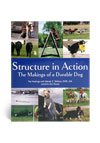 Structure in Action- The Making of a Durable Dog - A Book by Pat Hastings and Wendy E. Wallace, DVM cVA and Erin Anne Rouse
$29.95
Structure in Action- The Making of a Durable Dog - A Book by Pat Hastings and Wendy E. Wallace, DVM cVA and Erin Anne Rouse
$29.95
-
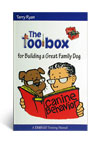 Terry Ryan's Toolbox for a Great Family Dog - A Book by Terry Ryan
$16.95
Terry Ryan's Toolbox for a Great Family Dog - A Book by Terry Ryan
$16.95
-
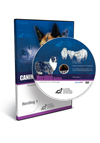 Herding I - Overview
$34.95
$29.95
Herding I - Overview
$34.95
$29.95
-
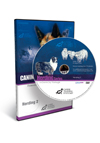 Herding II - Young Dogs
$34.95
$29.95
Herding II - Young Dogs
$34.95
$29.95
-
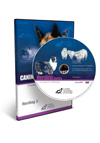 Herding III - Penning and Shedding
$34.95
$29.95
Herding III - Penning and Shedding
$34.95
$29.95
-
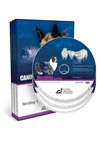 The Herding Series
$104.85
$89.85
The Herding Series
$104.85
$89.85
-
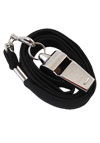 Windsor Clarion Whistle with Lanyard
$9.78
Windsor Clarion Whistle with Lanyard
$9.78
-
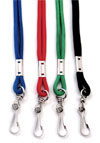 Round Whistle Lanyard
$2.00
Round Whistle Lanyard
$2.00
-
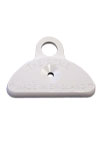 Shepherds Whistle
$8.00
Shepherds Whistle
$8.00
-
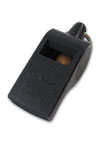 Acme Thunderer no 558 Whistle
$9.95
Acme Thunderer no 558 Whistle
$9.95
-
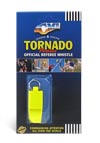 Tornado Slim Line Whistle
$4.50
Tornado Slim Line Whistle
$4.50




